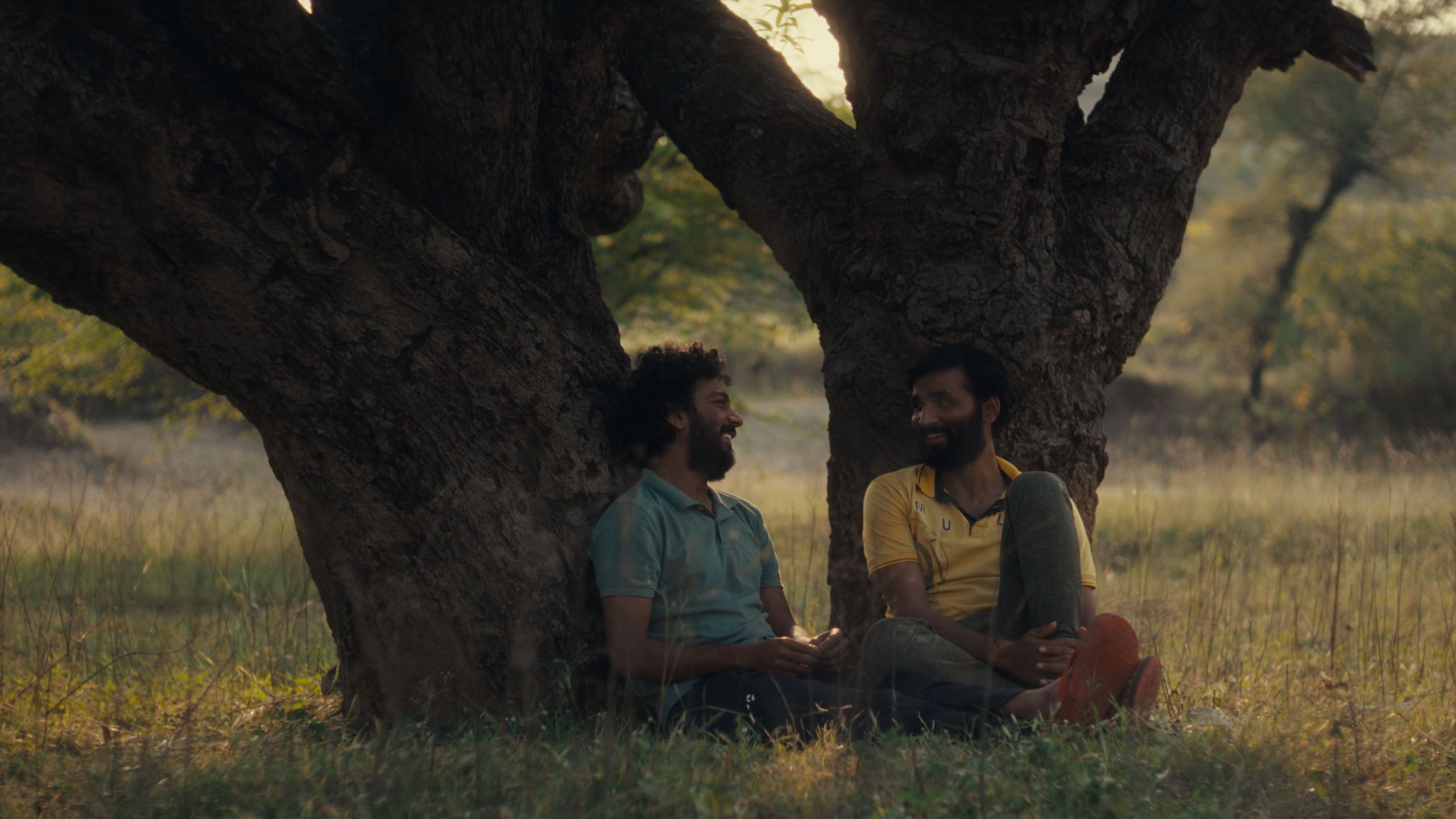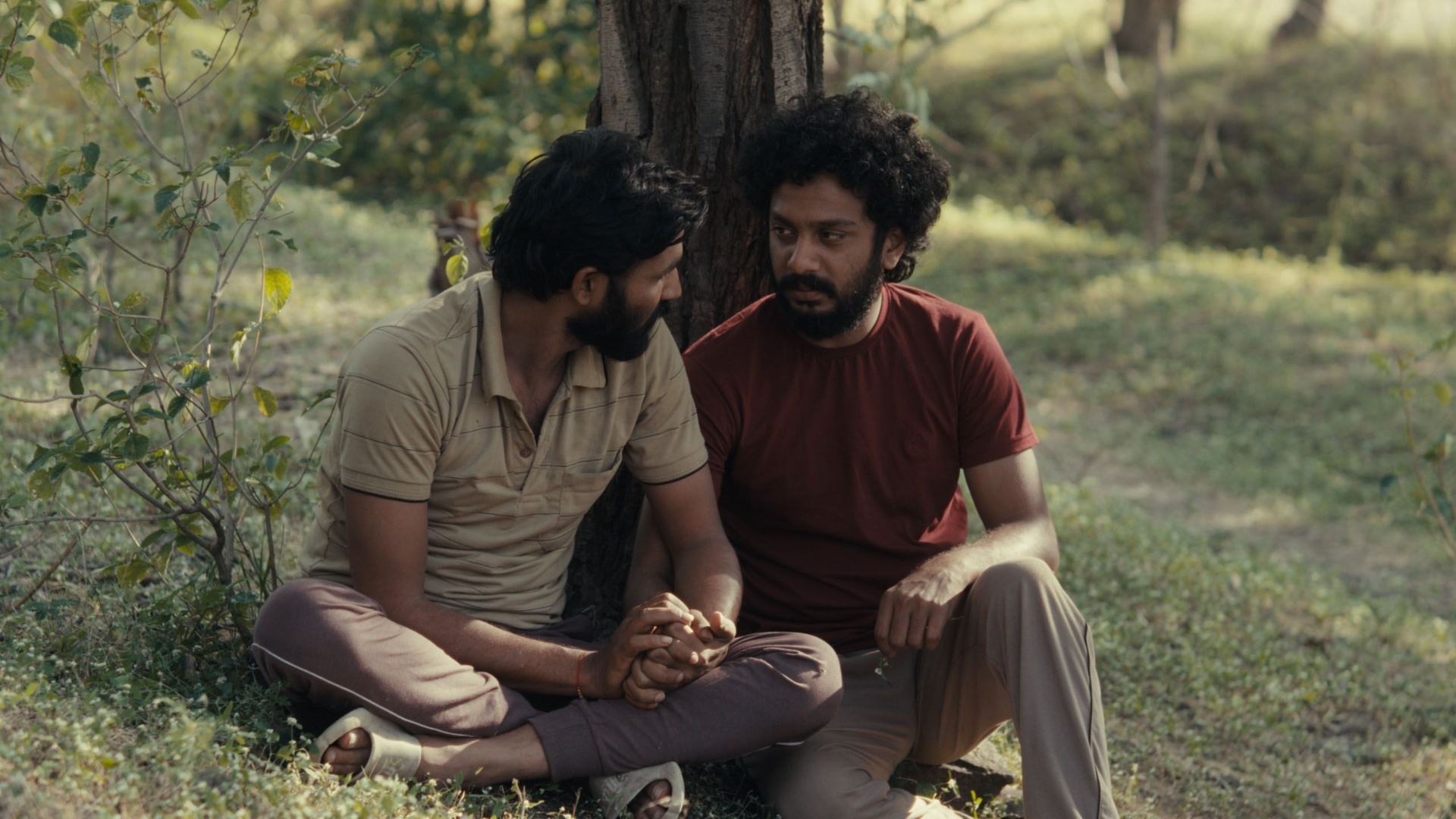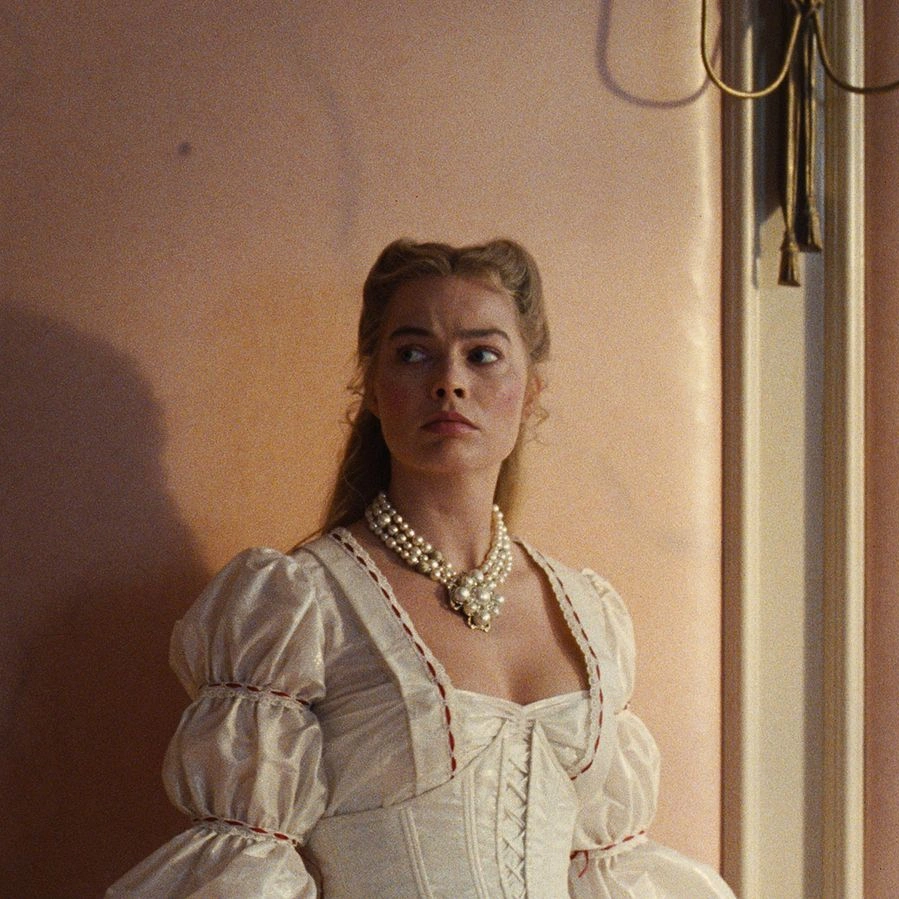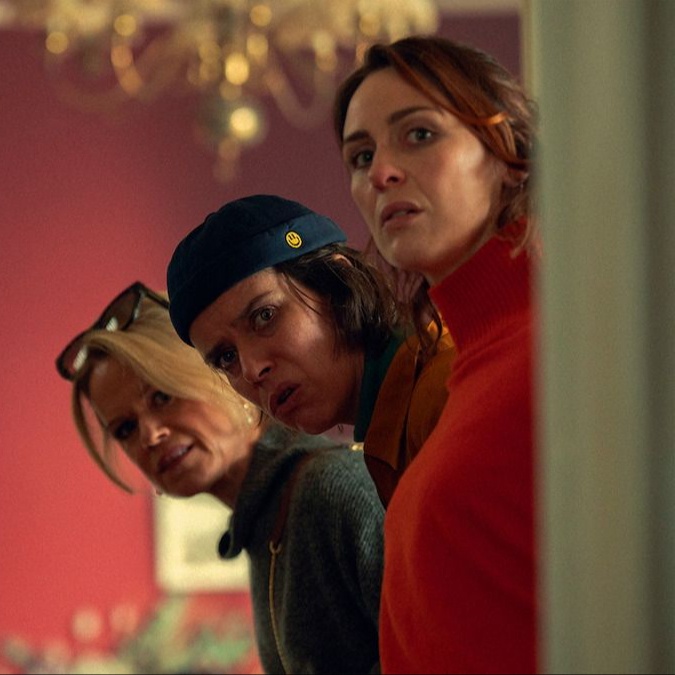Niggling relatives are inescapable, even when you’re mired in grief. It’s a feeling director Rohan Parashuram Kanawade is well acquainted with, having lost his father in 2016. Like Anand (Bhushaan Manoj), the protagonist of his first feature film, he too had journeyed back to his ancestral village for the 10-day mourning period. And, like his 30-year-old lead, he was immediately beset with nosy relatives. “Their first question was: Why are you still unmarried?” says the Mumbai-based filmmaker over Zoom. “These were all strangers to me because I hadn’t been to the village since I was in school. And there were just so many of them.”
In Sabar Bonda (Cactus Pears), the first-ever Marathi film to premiere at the Sundance Film Festival (January 23-February 2), the filmmaker’s unease is reflected throughout: As Anand chafes against the elaborate mourning rituals of his community, and as he appears subdued in contrast to the loud wailing of others around him. Shot in a tight aspect ratio (1.66:1) with rounded frame edges, the film captures the nostalgia of celluloid films and looks literally like a snapshot of grief.
The frames capturing Kharshinde (incidentally the filmmaker’s maternal village) are beautifully composed, but also hint at his family’s turbulent undercurrents. Towards the end of a conversation, you see a cow that starts shitting but the camera doesn’t cut away—life, after all, is messy. In another scene, the camera mirrors the distance Anand feels from his extended family—the viewer is kept at a distance from the rest of the mourners, staying behind in a van, instead of joining in as they proceed towards the house.
Back then, to bridge his own loneliness, the director would dream up a friend, someone he could sneak out with, away from the endless rituals and someone he could confide his sexuality to, far from the tiresome questions. In Sabar Bonda, that is Balya (Suraaj Suman), a local farmer and Anand’s childhood friend. “I’d come across these stories of farmers in villages not finding brides,” he says. “They’d stay unmarried for a very, very long time.” An idea began to form—what if the farmers who were gay used this as an excuse for not being married, without ever having to reveal their sexuality? If Balya was one of those farmers, how would he feel about seeing Anand again? Would their friendship be the same? “The grieving part was autobiographical, but the rest of the film was fiction,” explains Kanawade.

Sabar Bonda has no musical score, and is filled with long stretches of silence. Sounds here are diegetic, like a crackling pyre or chirping crickets, but none to smooth over the awkwardness of conversations one has with relatives they haven’t met in years. When Kanawade visited his ancestral village as a child, he and his mother would often be alone at home as the rest of their relatives went to work. They were both quiet people, which he wanted the film to reflect.
All the silence in Sabar Bonda also becomes a metaphor for all the things Anand and Balya can’t openly talk about. The concept of having a male partner is unfamiliar—in one scene, Balya asks Anand if he has a ‘khaas mitra’ or ‘special friend’. “I didn’t want to use the word ‘boyfriend’. A villager like Balya wouldn’t say that. This is what I instinctively came up with,” says Kanawade. Anand works at a call centre, a job that hints at his tendency to talk, but not really communicate. Instead, he and Balya express themselves through gestures. A prickly cactus pear that Balya finds for his childhood friend provides one of the film’s most tender moments, and inspires its title.
In another quietly emotive scene, Balya’s fingers comb through Anand’s hair in a closeup that emphasises their easy intimacy. It’s a scene Kanawade borrowed from his personal life, recalling all the times he’d done the same to his partner. “I do it when he has a headache; I do it at night so he can go to sleep,” says the director. What is interesting is that the filmmaker didn’t employ an intimacy coordinator for Sabar Bonda. Instead, to prepare his actors for the more suggestive scenes, he and his partner spoke to them about how sexuality was just a small part of their characters’ lives, and not their whole identity. “I wanted them to be men, and not gay men,” he says. It helped that Bhushaan and Suraaj were longtime friends, which mitigated any chance of awkwardness. “Thankfully, they didn’t add any gestures that screamed: Oh I’m playing a gay character! They had this sensitivity,” he says.
His only brief was that he wanted to portray the kind of gentle relationship between men that he hadn’t seen onscreen before. It wasn’t about depicting two men having sex, but the intimacy they might display after the act instead, he says. He had a harder time with the actors who played the rest of the villagers, many of whom were part of local theatre productions and were used to an exaggerated style of performance. “They told me they’d never done such ‘simple’ acting in their life,” he laughs.
To counter the films he’d seen, in which rural characters were often depicted as dark-skinned and the city characters as fair, Kanawade decided that he wanted Balya to be light-skinned, despite having a farmer’s tan. That’s not the only act of subversion in Sabar Bonda. In one scene, Anand and Balya share a pair of earphones. The audience can’t hear what they’re listening to, but Balya references the 2016 drama Sairat, which immediately seems like ominous foreshadowing—is this another Marathi film about a doomed pair? The director says the connection wasn’t intentional, but he was tired of seeing “the struggle and tragic ending” that gay characters are subjected to in films. “There are so many positive stories. Why don’t we see those? My gay friends have found partners even in their 70s,” he says. With Sabar Bonda, he set out to “change the narratives of queer cinema.”
“When I was growing up, I wasn’t sad or questioning my sexuality. This might be the reality for other people, but it’s the only reality we see onscreen. We need to see the other side too,” says the filmmaker. In some of the labs he’d participated in, like the NFDC Marathi Script Camp, Film Bazaar Co-Production Market, Film London Production Finance Market and the Venice Gap Financing Market, mentors would tell him that the film shouldn’t have a happy ending, and that maybe one was “unearned.”
“I’d say: Sorry, that is not happening,” he adds.
Sabar Bonda, released internationally as Cactus Pears, premieres at the Sundance Film Festival on January 26th.







